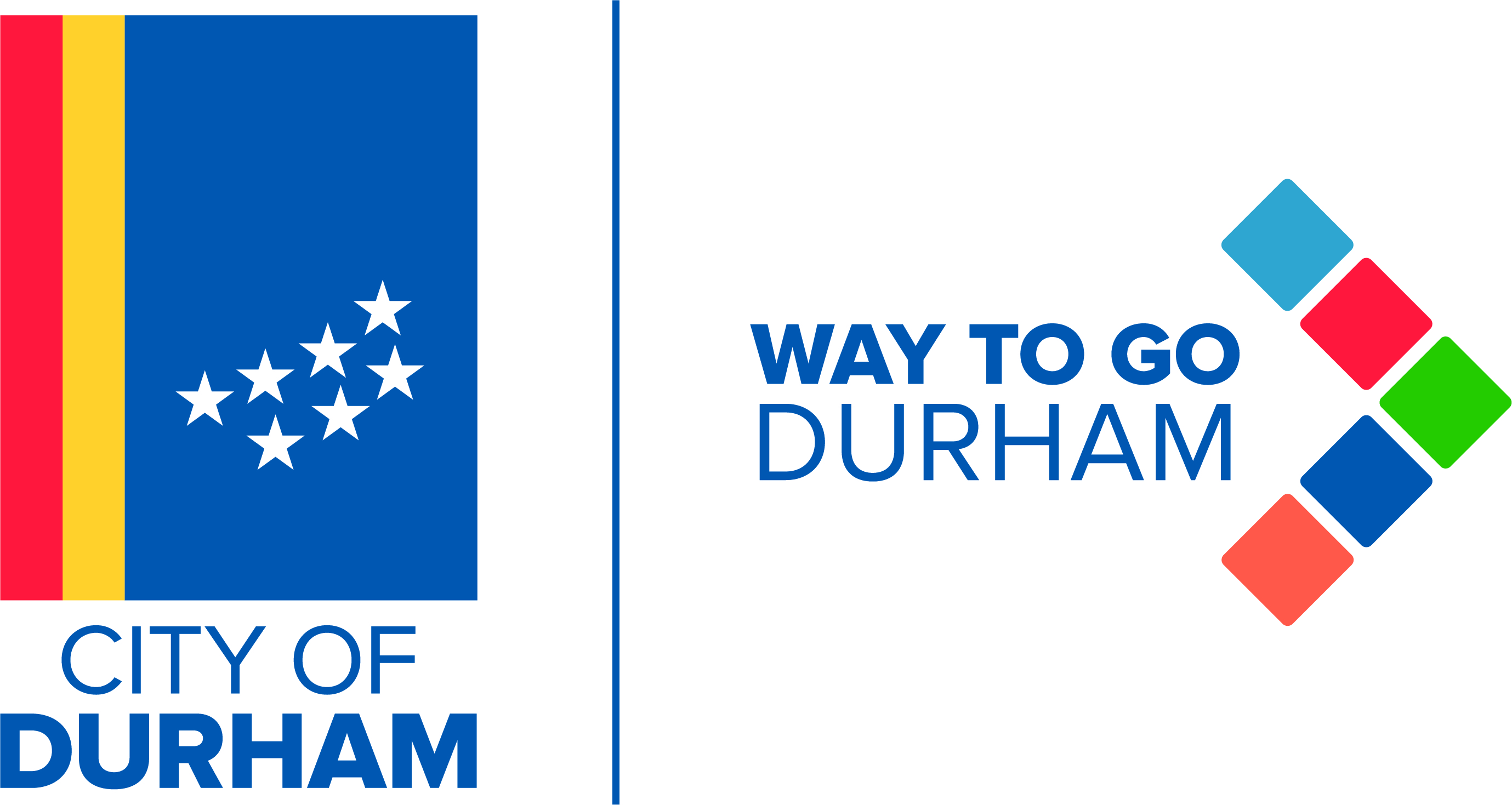DURHAM COUNTY / CITY OF DURHAM

The City of Durham works with its regional partners to create and identify cost-effective solutions to reduce single-occupancy vehicle trips. These solutions are part of a program, Way to Go Durham, that aims to make individuals and employers aware of commuting choices and resources in and around Durham.
By encouraging residents to explore choices such as walking, cycling, or transit, Way to Go Durham will save the city from investing in costly new infrastructure such as roadway expansions and building new parking garages. These active transportation choices will also reduce congestion and harmful greenhouse gas emissions while improving the quality of life for Durham residents.
As a result of reviewing and measuring TDM efforts and accomplishments, Durham employees are working more off-peak hours, increased telework participation, and increased carpooling, vanpooling, and transit commute options. Durham has also implemented a city-wide scooter program and launched the Bull E-Bike Pilot program.
For more information, visit Way to Go Durham, subscribe to our monthly newsletter, Follow Us on Twitter @MoveSafeDurham, or contact:
Hannah Reynolds AICP, Transportation Demand Management Planner
Hannah.Reynolds@DurhamNC.Gov
or
Imani Johnson, Public Information Communications Analyst
Imani.Johnson@DurhamNC.Gov
Central Durham
The Central Durham hot spot includes Downtown Durham and centrally located employers.
Working together with Durham Employee Transportation Coordinators (ETCs), GoDurham local transit agency staff, and Durham employer outreach, employers can be instrumental in improving access to and mobility in Durham, quality of life by reducing traffic congestion through alternative commute modes and effective parking management.
Mission: Cultivating instrumental partnerships is key to achieving our congestion mitigation goals in the Triangle. Working together with Durham employers, ETCs, GoDurham staff and Durham outreach staff, employers can be instrumental in improving our environment, quality of life, and work-life balance for employees. By maximizing our roles in mitigating traffic congestion and its associated emissions contributing to air quality and health issues, collectively, we can achieve those goals.
Durham County TDM (Transportation Demand Management) Programming: Employers located in Durham County are encouraged to develop and implement a TDM Program at their work sites. Partnering with your Durham outreach coordinator, you can design a program intended to reduce the number and length of drive-alone commute trips to and from your location, helping to minimize single occupancy vehicle travel. Learn how to develop a commuter benefits program for your employees at Way To Go Durham.
Employee Commuting Survey and Baseline Surveys: Durham employers are also encouraged to participate in a biennial employee commuting survey, offered through and administered by GoTriangle, on odd-numbered years, free of charge. Survey results are delivered in report format and provide valuable insight to employee commute habits and alternate mode preferences. This information adds value to both your plan and considerations for future commuter benefits. For those employers who need some baseline information in between survey cycles, we also offer a 10-question baseline survey for employers, developers, mixed use property managers and residential managers, that will ascertain basic commuter information that can allow you to get started. See an example of the most recent
Accomplishments: As a result of reviewing and measuring TDM efforts and accomplishments, Durham employees are working more off-peak hours, have increased their telework participation, and increased the use of both carpooling, vanpooling and transit commute options. Durham has also implemented a city-wide scooter program, providing commuters and residents with a first/last mile connection to transit.
In order to increase awareness of traffic safety and aimed at eliminating traffic fatalities of any kind in Durham, the Vision Zero Durham program is in progress.
For more information about creating a trip reduction program at your workplace, visit Way To Go Durham or contact:
- Hannah Reynolds AICP, Transportation Demand Management Planner
- 919-560-4157, ext. 36502
or
- Imani Johnson, Public Information Communications Analyst
- 919-560-4366 Cell: 919-338-6747
